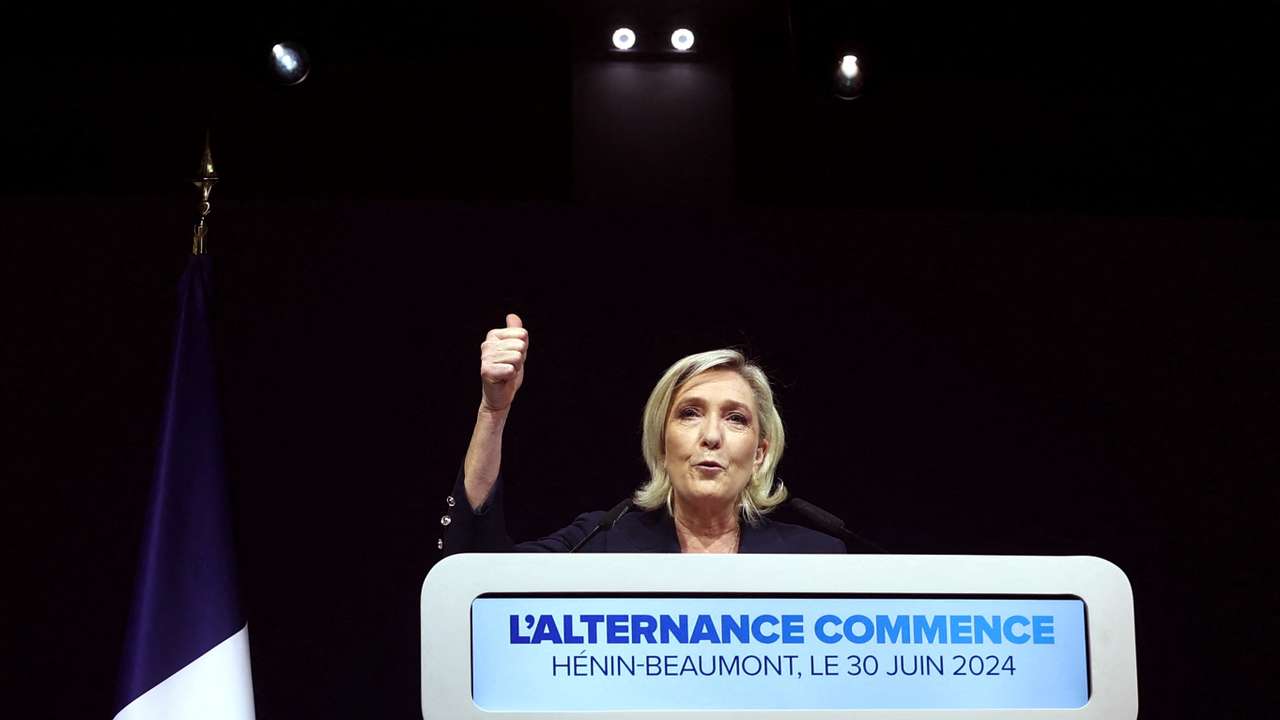France’s Le Pen earthquake — when justice collides with democracy

A court ruling has just shaken France’s political establishment: Marine Le Pen, the country’s leading opposition figure and a central force in Europe’s far right, was sentenced on March 31st to four years in prison (two to be served), a €100,000 fine, and five years of ineligibility for public office.
Most strikingly, the sentence is immediately enforceable, leaving no room for suspensive appeal.
The case stems from a long-standing scandal over fake jobs in the European Parliament between 2009 and 2016, in which Le Pen’s party — the Rassemblement National (formerly Front National) — is accused of having misused public funds to pay party staff. The court described the misconduct as “proven, serious, and sustained over time.”
But beyond the legal reasoning, the ruling has set off a political and democratic earthquake.
Can a judge remove a leading presidential candidate?
In a democracy, can a judge bar from office the frontrunner in a national election — without the people having a say? Le Pen was polling at 37% in the first round of the 2027 presidential race, making her the clear favourite to reach the runoff and perhaps the presidency itself for the first time after three previous attempts.
On the left, many hailed the ruling as a triumph of justice and republican values. On the right, and especially within Le Pen’s orbit, the move is seen as a direct blow to popular sovereignty. An old but fundamental debate has resurfaced: in a democracy built on universal suffrage, is it for judges or the people to decide a political leader’s fate?
Ironically, Le Pen herself once argued that “any elected official convicted of fraud should be banned from office for life.”
Strategy of defiance
Le Pen has refused to step back. Instead, she has launched a full-scale counteroffensive: rallies, media blitz, accusations of a “judicial coup.” Her message is simple — she’s not the criminal; she’s the victim of a system desperate to eliminate her through legal means.
Three scenarios remain possible:
- An appeal is likely to be heard in 2026. Yet, because the sentence is immediately enforceable, she may remain barred regardless of the outcome.
- A presidential pardon could be issued in the name of national unity or democratic legitimacy.
- A legal challenge, both before France’s Constitutional Council and the European Court of Human Rights (ECHR), contesting the proportionality and immediate execution of the sentence.
Yet the most realistic scenario is emerging: a Bardella-Le Pen tandem. Jordan Bardella, Le Pen’s political heir and president of the Rassemblement National, could run for the Élysée, while Le Pen would seek the role of Prime Minister — echoing the Italian model, where Giorgia Meloni has relied on trusted lieutenants to consolidate power.
A broader republican discomfort
This shock goes beyond Le Pen. Jean-Luc Mélenchon, the radical leftist leader and himself under legal scrutiny in a similar case, has called the ruling a “denial of democracy.” François Bayrou, the centrist Prime Minister, expressed discomfort at the sentence — a remark that drew sharp criticism, as members of the executive are not supposed to comment on judicial decisions. The breach of the separation of powers has raised eyebrows across French institutions.
This case highlights a growing tension between the primacy of law and democratic legitimacy: how strictly should laws be applied when the political consequences are so far-reaching? In other words, can the rule of law collide with the will of the people — and what happens when it does?
A Cautionary Tale for the Global South
Far from a purely French affair, the Le Pen case raises a universal dilemma for modern democracies: how to balance an independent judiciary with the democratic impulse. If the law is seen as silencing a popular choice, it risks losing its moral authority.
In France, this shock is already reshaping the political landscape. But more importantly, it tests the resilience of democratic institutions — and asks a pressing question: How far can justice go before it fractures popular trust?
Jack Zaoui is the France correspondent for Global South World, an international media outlet focused on the dynamics of the Global South. A recognised expert in economics and geopolitics, he regularly contributes in-depth analysis, offering a unique perspective on global power shifts, economic transformations, and contemporary strategic balances. With an international background, Jack Zaoui has lived in France, Israel, and several other countries—an experience that enriches his reporting and sharpens his understanding of global issues.